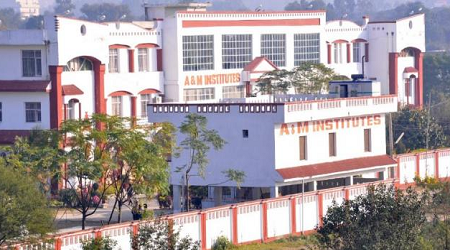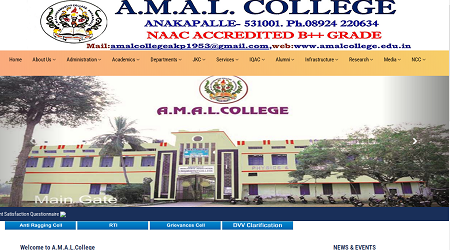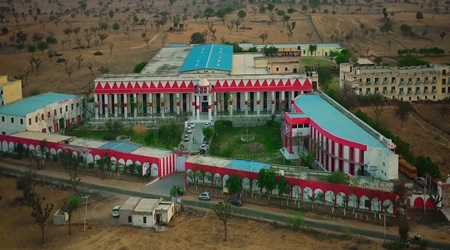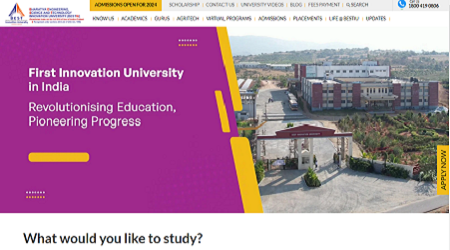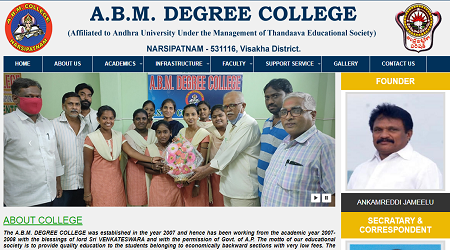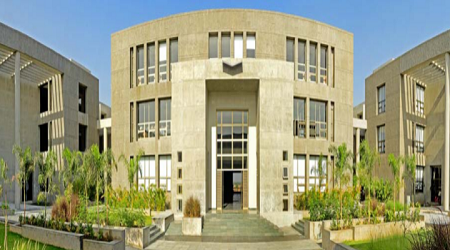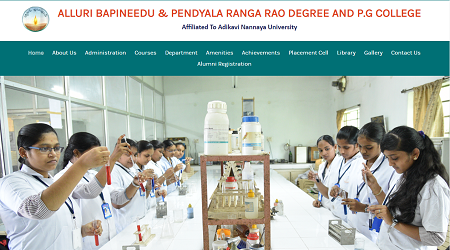B.Sc. in Medical Imaging Technology Course Full Details
The B.Sc. in Medical Imaging Technology is a three-year programme broken into six semesters of six months each. The techniques and processes used in producing photographs of human body parts for clinical reasons or in medical study are covered in this topic.A Higher Secondary/ 10+2 qualification from a recognised educational board is the fundamental qualifying condition for this programme. Depending on the college offering the course, the typical cost paid in India for taking this degree ranges from INR 2 to 5 Lacs.
THREE_BUTTON
Graduates of the degree earn anywhere from INR 3 to 10 Lacs per year, depending on their level of proficiency in the sector. Nuclear Medicine Technologist, Radiologic Technologist, Radiographers, X-Ray Technicians, and Ultrasound Technicians are some of the positions they have.
Course Highlights:
| Degree | Undergraduate |
| Full-Form | Bachelor of Science [B.Sc] (Medical Imaging Technology) |
| Duration | 3 Years |
| Age Between | 18 – 25 years. |
| Eligibility | Passing 10+2 from a Recognized Board |
| Course Fees | INR 2 to 5 Lacs |
| Average Starting Salary | INR 3 to 10 Lacs |
| Job Positions | HLL Life Care Limited, South Eastern Coal Fields Limited (SECL), Steel Authority of India (SAIL), Employees State Insurance Corporation (ESIC) and many more. |
Course Eligibility:
Candidates must have completed 10+2 from a recognised educational board with a minimum aggregate score of 50% in Physics, Chemistry, and Biology as primary courses in order to be admitted to the programme.
Admission Process:
The entrance examination administered by the respective institution is the fundamental admission process in most colleges providing the programme. Many other colleges, on the other hand, admit students entirely on the basis of their 10+2 results, with a final round of counselling following.
How to Apply?
The full version of B.Sc MIT is B.Sc (Medical Imaging Technology). The information about the B.Sc MIT college can be found on the college’s website. Admission to the course can be obtained through both online and offline ways. The applicant must complete the online application form and upload all relevant papers in order to be considered for admission. They must present all essential papers and fill out the application form in person if they choose the offline approach.
Documents Requirement:
- Mark sheet and pass certificate of your Class X or XII examination.
- Proof of date of birth.
- School leaving certificate
- Transfer certificate
- Domicile certificate/ residential proof or certificate
- Provisional certificate
- Character certificate
- Scheduled Caste/ Scheduled Tribe/Other Backward Caste certificates
- Proof of disability (if any)
- Migration Certificate
Top College:
| AIIMS Delhi – All India Institute of Medical Sciences New |
| AFMC Pune – Armed Forces Medical College |
| KPC Medical College and Hospital, Jadavpur |
| Vydehi Institute of Medical Sciences and Research Centre, Bangalore |
| BJMC Pune – BJ Government Medical College |
| SRMCRI Chennai – Sri Ramachandra Medical College and Research Institute |
| NMCH Sasaram – Narayan Medical College and Hospital |
| SGT Medical College Hospital and Research Institute, Gurgaon |
| Kasturba Health Society’s Mahatma Gandhi Institute of Medical Sciences, Sevagram |
| Dr BR Ambedkar Medical College, Bangalore |
Course Subjects:
| Communication Skills |
| Radiographic Anatomy |
| Basic Computer Skills 1 |
| Radiological Physics |
| Basic of Anatomy |
| Radiographic Photography |
| Basic of Physiology |
| General Principles of Hospital Practice and Care of Patients |
| Fundamentals of Imaging Technology |
| Physics of Radiographic Equipment |
| Patient Care in Diagnostic Radiology |
| Radiographic Techniques – Routine Procedures Paper 1 |
| Radiographic Techniques – Special Procedures Paper 1 |
| Radiographic Techniques – Routine Procedures Paper 2 |
| Radiographic Techniques – Special Procedures Paper 2 |
| Radiographic Techniques – Routine Procedures Paper 3 |
| Radiographic Techniques – Special Procedures Paper 3 |
| Quality Assurance and Radiation Safety |
| Physics of New Imaging Modalities – CT and Ultrasound |
| Ultrasound Imaging |
| Physics of New Imaging Modalities – MRI and Digital Imaging |
| Interventional and Digital Radiology |
| CT Imaging and Contrast Technique |
| MRI Imaging, Patient Care Technologist’s Role and Practical |
| CT Imaging and Patient Care Technologist’s Role and Practical |
| Organizing and Managing Imaging Department |
| Project |
| Radiographic Positioning |
| CT Imaging |
| Radiographic Special Procedures |
| MRI |
| USG or Doppler |
| Front Office |
Future Course:
- MSc Radiology
- MSc Medical Radiation Physics
- PGD in Radiotherapy Technology
- PGD in X-ray Radiography
Future Job Scope:
- Radiologic Technologist
- Medical Image Analysis Scientist
- Ultrasound Technician
- X-Ray Technician
- Radiographer
Salary Average:
| Radiologic Technologist | 30,000 to 50,000 |
| Medical Image Analysis Scientist | 40,000 to 50,000 |
| Ultrasound Technician | 30,000 to 50,000 |
| X-Ray Technician | 7,000 to 10,000 |
| Radiographer | 20,000 to 22,000 |
THREE_BUTTON
FAQs:
| What is the length of the BSc Radiography and Imaging Technology course? |
| The BSc Radiography and Imaging Technology curriculum lasts three years. |
| Is it feasible to pursue a master’s degree after completing a bachelor’s degree in radiography and imaging technology? |
| Yes. After completing a BSc in Radiography and Imaging Technology, you can pursue a Masters degree. |
| What Master’s programs are offered following a BSc in Radiography and Imaging Technology? |
| · Radiography and Imaging Technology (M.Sc.) · Postgraduate diploma programmes · Certificate programme for postgraduates · MBS is also available for those interested in pursuing a management programme. |
| Is this a course that will be useful in the future? |
| Yes, this degree has a bright future because it is one of the fastest expanding medical disciplines. |
| What is the average pay for this course’s graduates? |
| The typical annual pay will be in the range of 2-3 LPA. |
| Is it required to have studied PCB subjects in order to be eligible? |
| Yes, it is required. |
| What are the most promising employment prospects after completing this course? |
| Radiological Technician, MRI Technician, CT Technologist, and so on are all examples of radiological technicians. |
Read More
Latest News & Updates
- How to Choose the Right Coaching Center for Entrance Exams
- Career Opportunities After Completing a Degree in Chemistry
- Top Colleges for Film Studies in India: Admission Guide
- Best Career Options After Completing MBA
- Top Institutes for Data Science Courses in India
- Top Colleges for Hotel Management in India: Admission Guide
- How to Choose the Right Specialization in Engineering
- Career Opportunities After Completing a Degree in Social Work
- Top colleges for Fine Arts in India: Admission Criteria
- How to Apply for a Government Job After Graduation
Top Courses
- BACHELOR OF TECHNOLOGY IN INFORMATION TECHNOLOGY LATERAL ENTRY
- BACHELOR OF SCIENCE IN AQUACULTURE AND FISHERY MICROBIOLOGY
- BACHELOR OF SCIENCE IN AGRICULTURE EXTENSION MANAGEMENT
- BACHELOR OF ARTS IN PHYSICAL EDUCATION
- BACHELOR OF ARTS IN RURAL DEVELOPMENT
- BACHELOR OF SCINCE IN AIRLINES, TOURISM AND HOTEL MANAGEMENT
- BACHELOR OF SCIENCE IN HUMAN NUTRITION
- BACHELOR OF SCIENCE HONOURS IN HARDWARE & NETWORKING
- BACHELOR OF ARTS HONOURS IN PHILOSOPHY
- BACHELOR OF SCIENCE IN GENETICS



